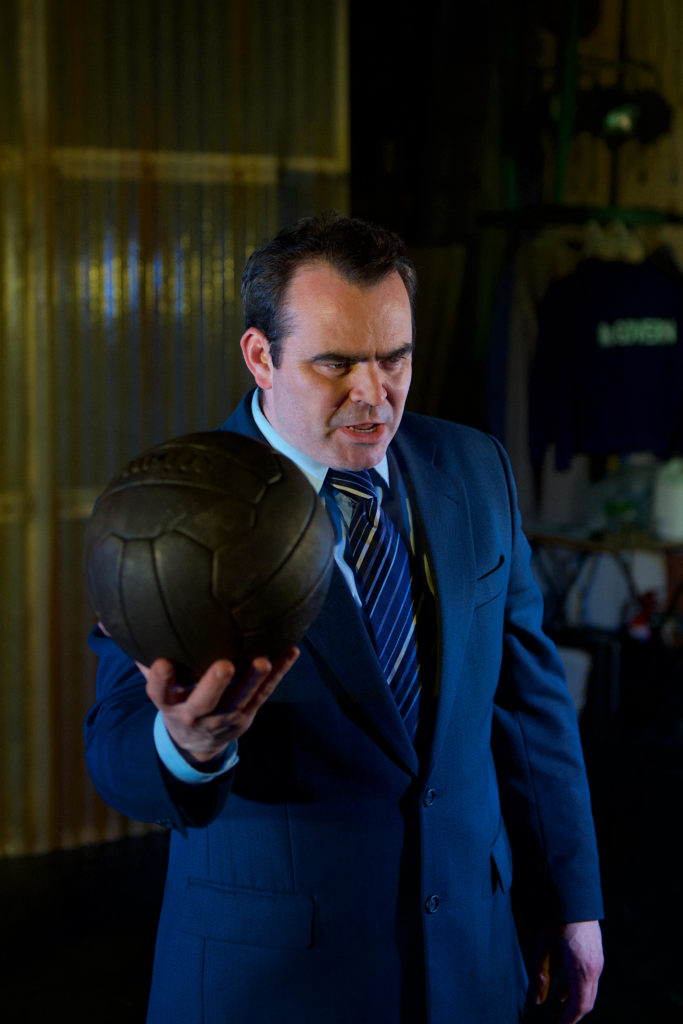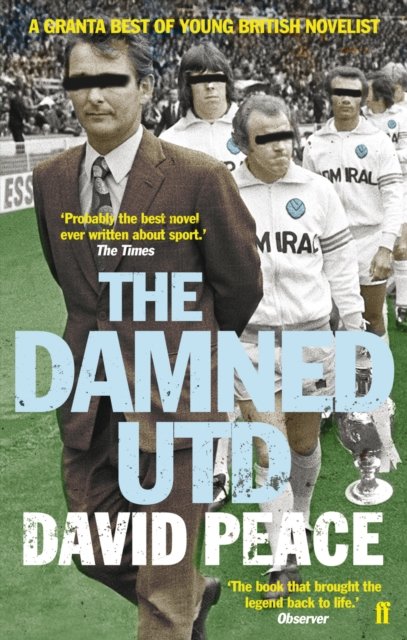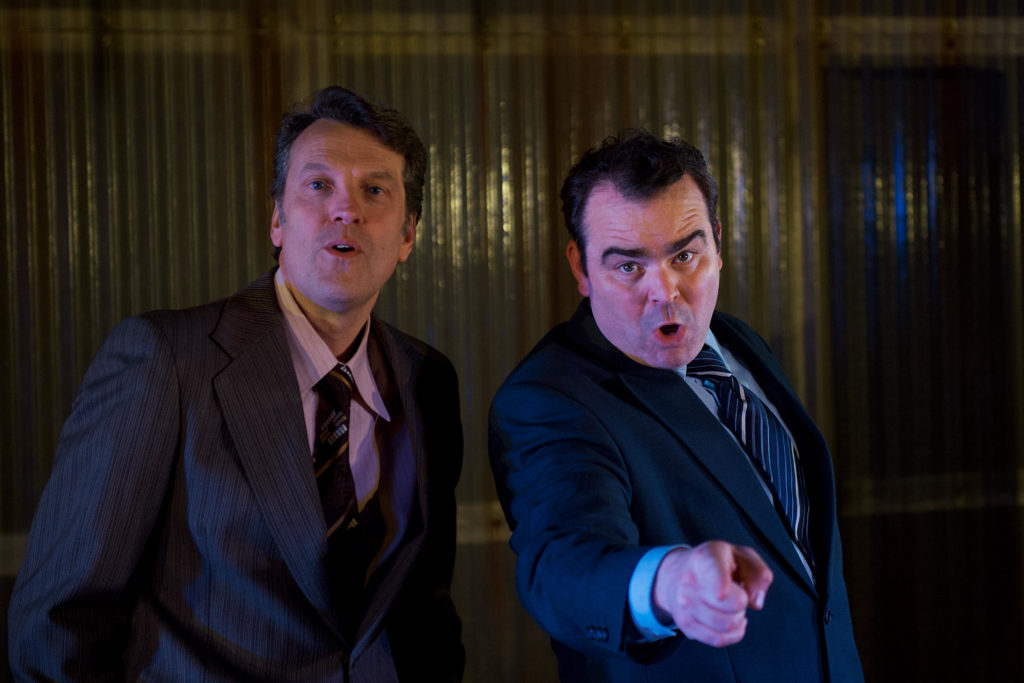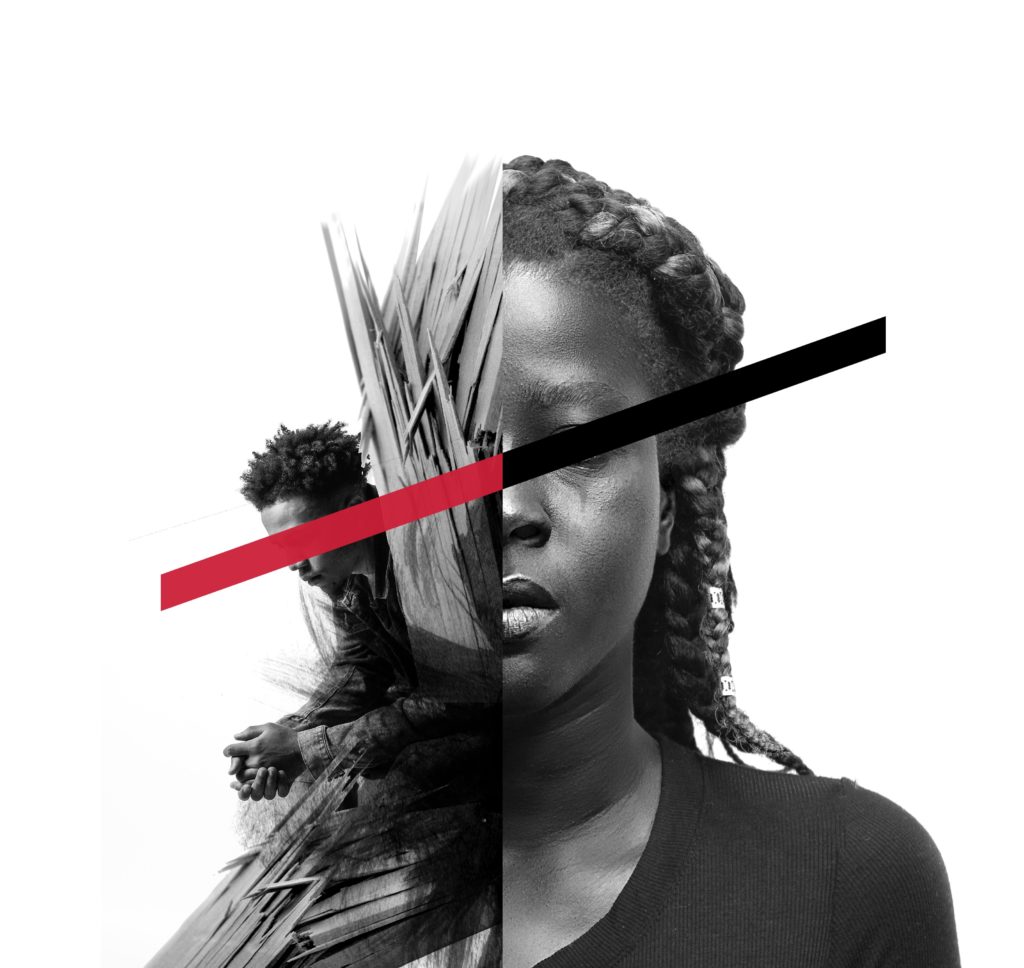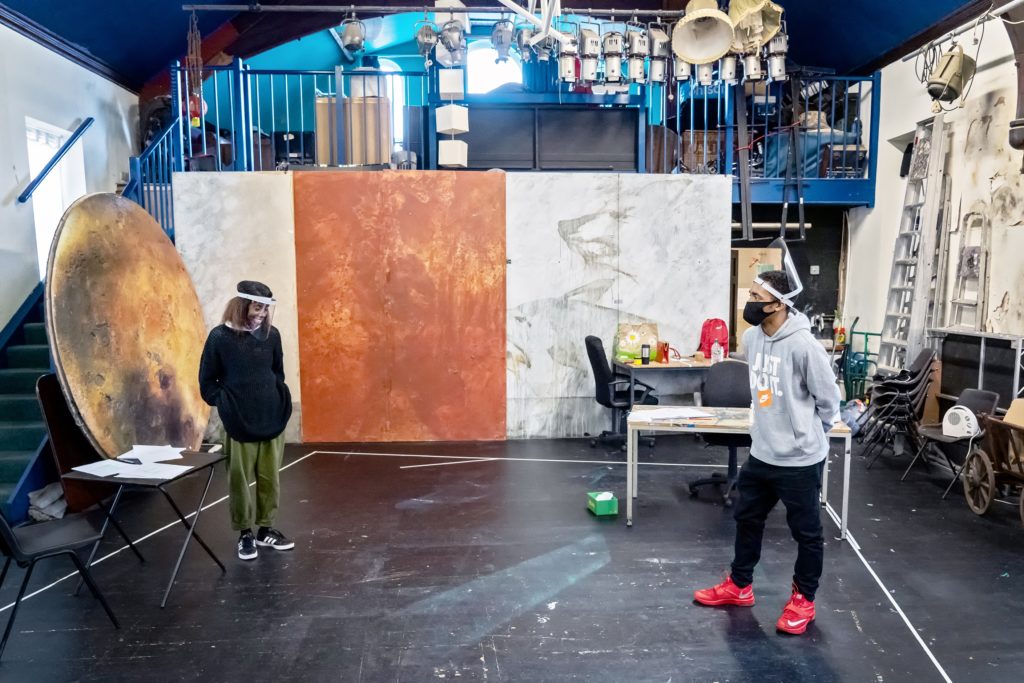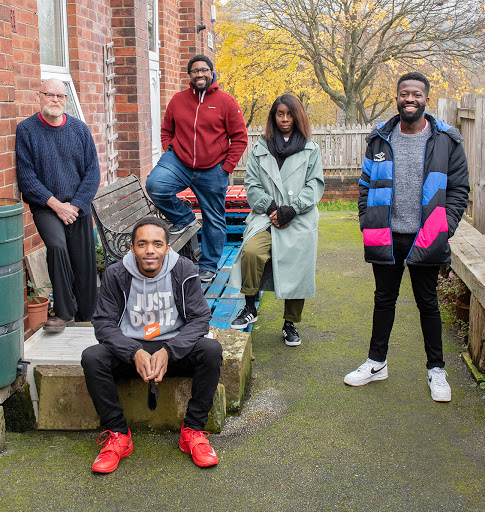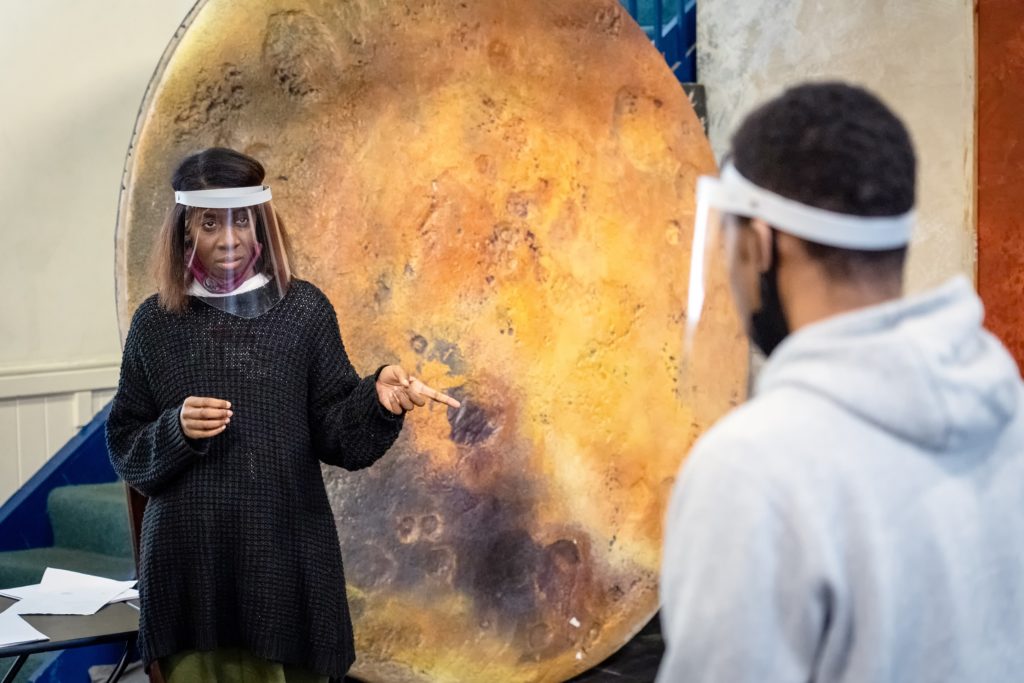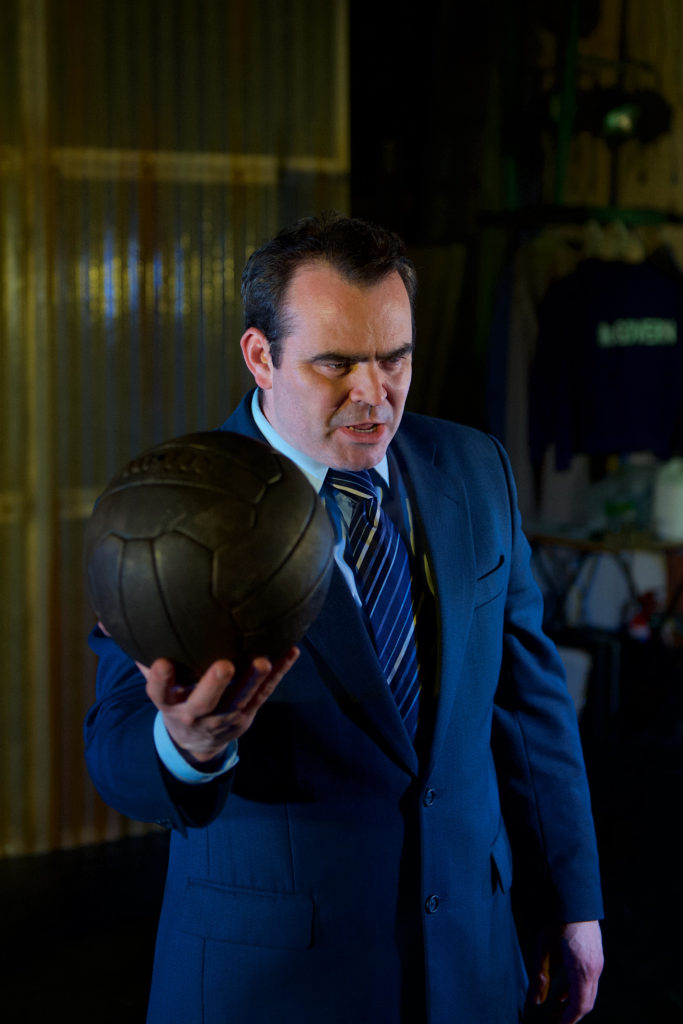
NEWSFLASH!
THE Damned Pandemic curse strikes again as tonight’s (16/6/2021) performance of The Damned United is OFF after one of the actors had an inconclusive lateral flow test. The show has been rearranged for Thursday, July 15, kick-off 7.30pm. Tickets remain valid.
BRIAN Clough lasted all of 44 days as manager of Leeds United in the cauldron of hatred in the summer of 1974.
By comparison, Luke Dickson is in fourth tour of playing Clough in his brief, bruising, self-destructive tenure when Elland Road turns into Helland Road in The Damned United.
“It keeps coming back,” says the Leeds-born actor, whose latest fixture list sends him to York Theatre Royal in Red Ladder Theatre Company’s touring production tomorrow night.
“I think we’ll have done something in excess of the 120-show mark, with me, David Chafer and Jamie Smelt in the cast, and we just keep returning! It’s one of those shows that people love.”
Ah, love. That might explain The Damned United’s otherwise baffling inclusion in The Love Season at York Theatre Royal, given how much spite and loathing, and not one heartbeat of love, pumps through the Leeds chapters of the Clough story.
The truth is more prosaic, as explained by chief executive Tom Bird: Rod Dixon’s show was booked in already when the reopening season’s theme took shape.
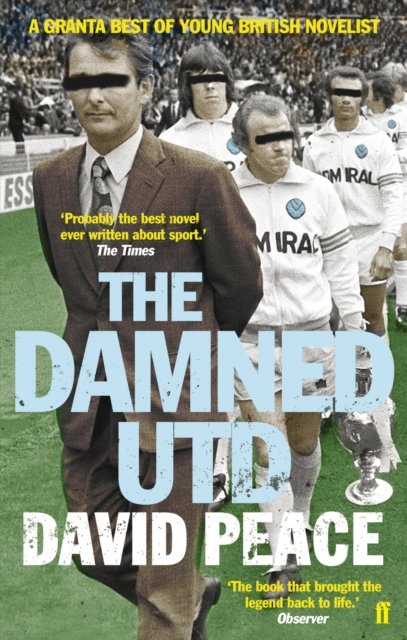
Enfant terrible Clough despised Don Revie’s “Dirty Leeds” and the feeling was mutual, drawing Dewsbury-born author David Peace to construct a psychodrama inside the life of Brian’s head: the biographical novel The Damned Utd, published in 2006.
Tom Hopper’s film, starring Michael Sheen, ensued in 2009 under the title The Damned United, and Leeds company Red Ladder have since presented various stage manifestations of Anders Lustgarten’s darkly humorous adaptation, built around the double act of Clough and father figure/assistant Peter Taylor.
Heading deep into the tortured mind of a flawed genius, slamming up against his limits, The Damned United brings to life the beauty and brutality of football, the working man’s ballet, in a story of sweat and booze, fury and power battles.
The performing rights were donated by Peace to Red Ladder for all of £3.68 – a penny for each page in the novel – as a show of support for the Leeds company when it suffered a 100 per cent cut to Arts Council funding.
Red Ladder artistic director Rod Dixon says: “As a story, The Damned United has it all – passion, power struggles, tragedy and a classic anti-hero in Clough – which lends itself brilliantly to theatre.
“Anders’ adaptation captures the grit, poetry and darkness of David Peace’s writing, and by charting the fall of Brian Clough and exposing what made ‘Old Big ’Ea’ tick, audiences are given a fascinating insight into the troubled but brilliant mind of a flawed genius – who, to this day, remains one of the most controversial figures in sporting history.”
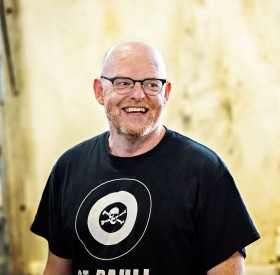
Dickson loves author Peace’s definition of his character study of Clough, a figure as divisive yet as indelibly part of British Seventies and Eighties’ life as Margaret Thatcher. “He said it isn’t a photograph; it’s a portrait; it’s interpretative, not merely biographical, but creative, trying to get inside the troubled head of Clough, quite horrifically, but poetically too,” he says.
Raised in Leeds, Dickson supports LUFC, albeit without the dedication of a season-ticket holder, but he knows Clough is the Hamlet of football roles on stage. “I enjoy football, like anyone, and I’m working in a show where everyone is a staunch supporter of a club, more so than me, and everyone has an opinion on Clough, saying, ‘he did this’ or ‘he did that’,” he says.
“I thought, ‘just leave it with me; I need to find my own path to his character, so I read a lot about him, particularly his childhood, his life around football, and what gave him such a big chip on his shoulder, and that aggressive, cruel tendency to lay into people.
“It’s more about the man than the manager, which is where the drama lies, the human condition, in Clough’s story.”
Dickson’s Clough, Chafer’s right-hand man Peter Taylor and Jamie Smelt’s “everyone else” last toured The Damned United two and a half years ago, and while returning to the play in part mirrors climbing back on a bike after a fall, there is more to the revival than that.
“You can definitely play with the nuances, the intonations, to keep it fresh on stage for us as actors, playing a scene a little differently,” says Luke. “David might come up with something different, and I have to react, and we also have to find a way to slow it down, to let it breathe more, when it’s so fast paced, to find the moment.
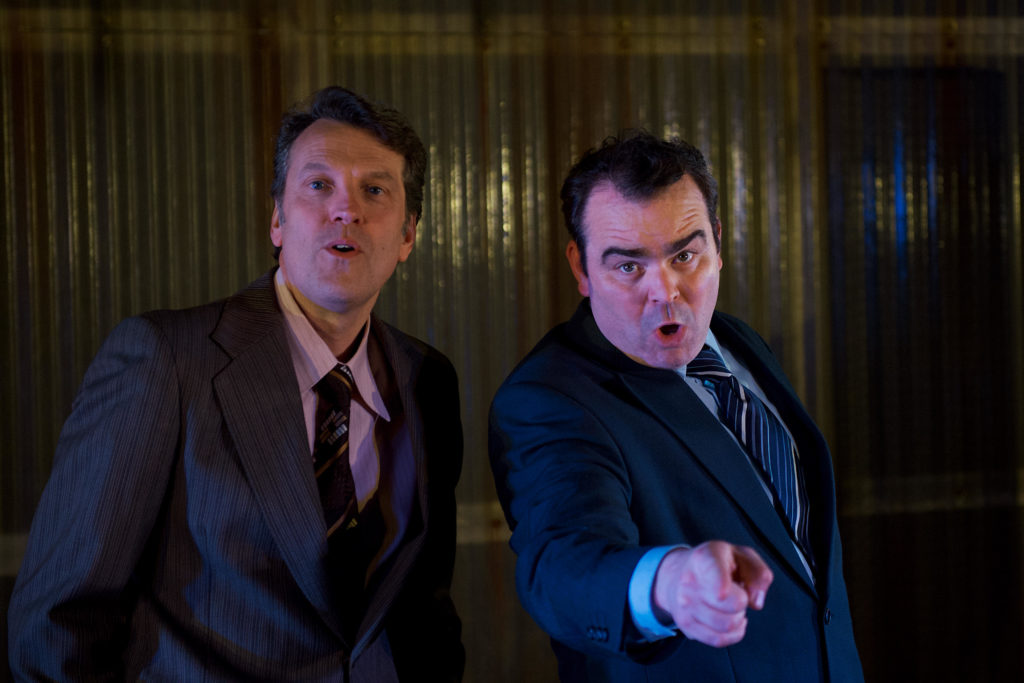
“We first did it at the Edinburgh Fringe, where everything has to be under an hour, whereas the original incarnation at the West Yorkshire Playhouse was around 75 minutes.
“Our version now runs just over an hour, with no interval apropos of Covid, and the script hasn’t changed from the last tour. I have to say there’s a fun feel to it this time, and once people are in the auditorium, sitting down, all those Covid thoughts wash away, and you’re all just there to enjoy the show.”
How has Dickson dealt with performing to audiences in masks? “Do you know, the masks haven’t affected it. You can still hear people talking during the show, saying ‘I was at that match’, because you’re playing to a football crowd as much as a theatre crowd,” he says. “Funnily enough, there are always people who stand up after 45 minutes, because that’s when it’s normally half-time!
“But back to masks, they’re becoming so commonplace now, it doesn’t really have an impact on me, and even if you can’t hear a smile, you can hear the chatter.”
On a fourth tour, Dickson is still discovering “new things” within The Damned United. “There’s such a lot to this story. How many times has this play been done in Leeds? It must be well into double figures now, but we still get good audiences. I must be eight years older now than Clough was when he was at Leeds, but I’ve still got a good head of hair!”
At the core of The Damned United is the Clough and Taylor double act, with all the highs and lows, the friendship and fall-outs, that go with such partnerships, and now in turn the bond of Dickson and Chafer.
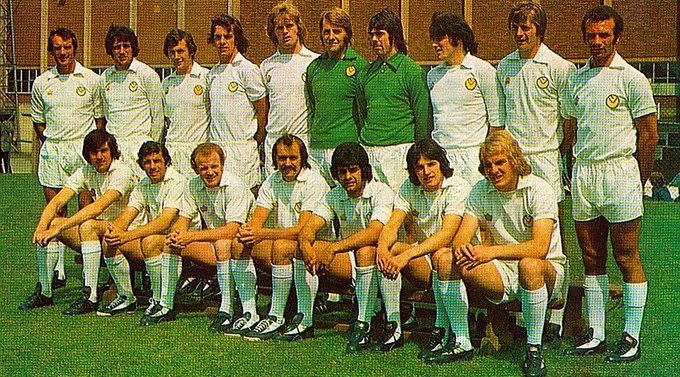
“We were talking the other day about what we might feel, in a year’s time, if other people were brought into the cast, and it would feel strange now if that happened, because we really need each other on stage,” says Luke.
“Looking at Clough and Taylor, there have been numerous books written about them, and it’s like a platonic male friendship that’s really deep running with all the ups and downs that can go with that, which I recognise from my own friendships that can feel unbreakable.
“But then you’re spending less time with them or you’re not in touch, which happened with Clough and Taylor, but because they had football within their friendship, they had to mix business and pleasure. Clough demanded such loyalty but then he had no compunction in deciding to leave Brighton for Leeds.”
The Damned United has the heightened intensity of a Greek tragedy, albeit leavened by dark humour. “It’s a tragic tale and Anders’ script brilliantly captures the central chapters within that tale in only an hour, which is no mean feat – though he would say he had wonderful source material. It’s a fantastic micro-display of friendship between two men.”
The Damned United tour is playing against the counter attraction of the Euro 2020 tournament, but on the other hand that means football is uppermost in people’s chat. “I’ll have to miss live matches, but that’s a cross I’ll just have to bear,” says Luke.
Red Ladder Theatre Company in The Damned United, The Love Season, York Theatre Royal, tomorrow (16/6/2021), kick-off 7.30pm. Box office: 01904 623568 or at yorktheatreroyal.co.uk.

